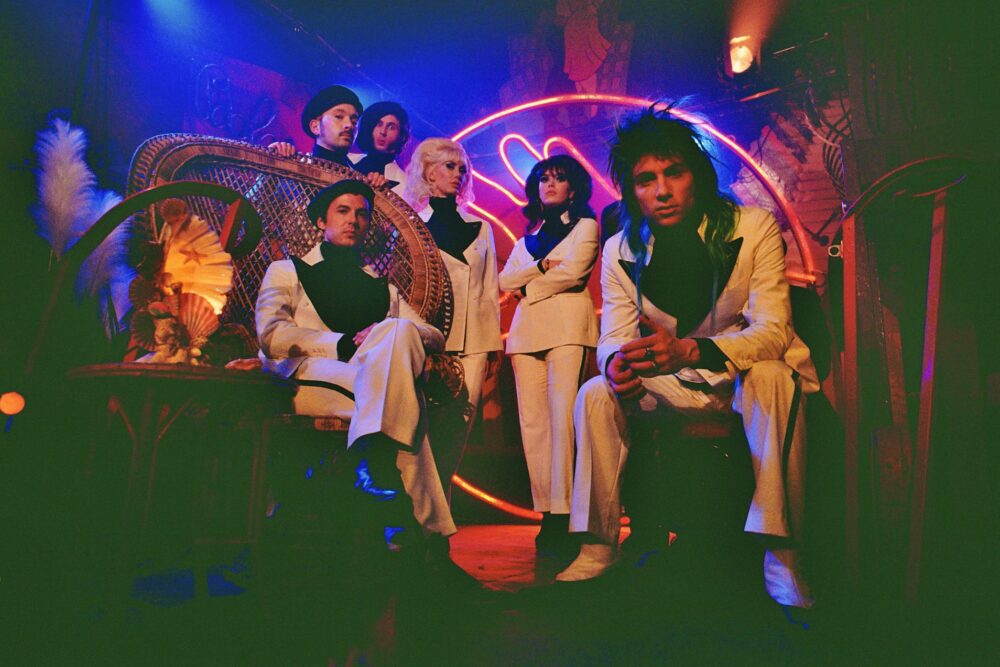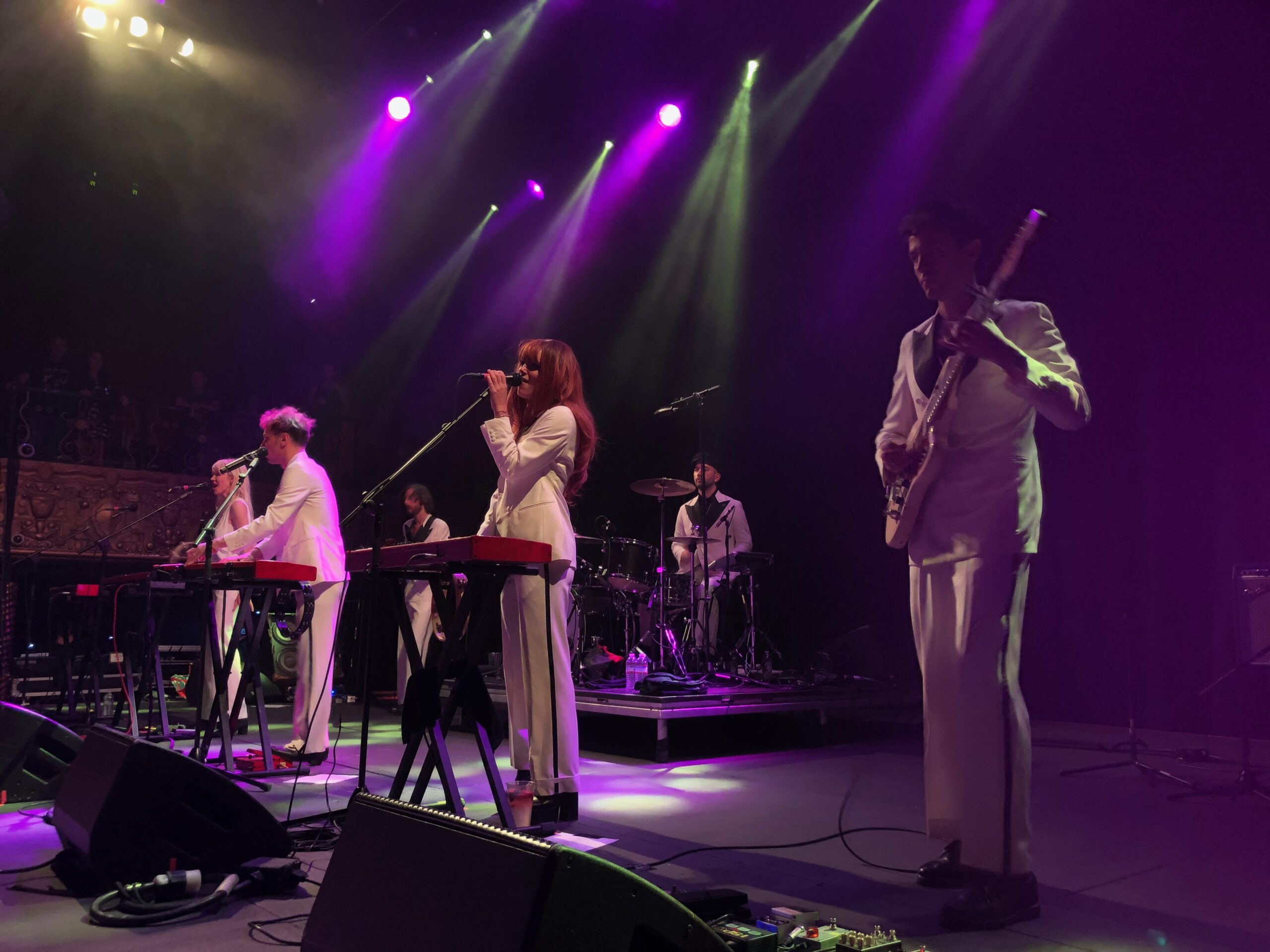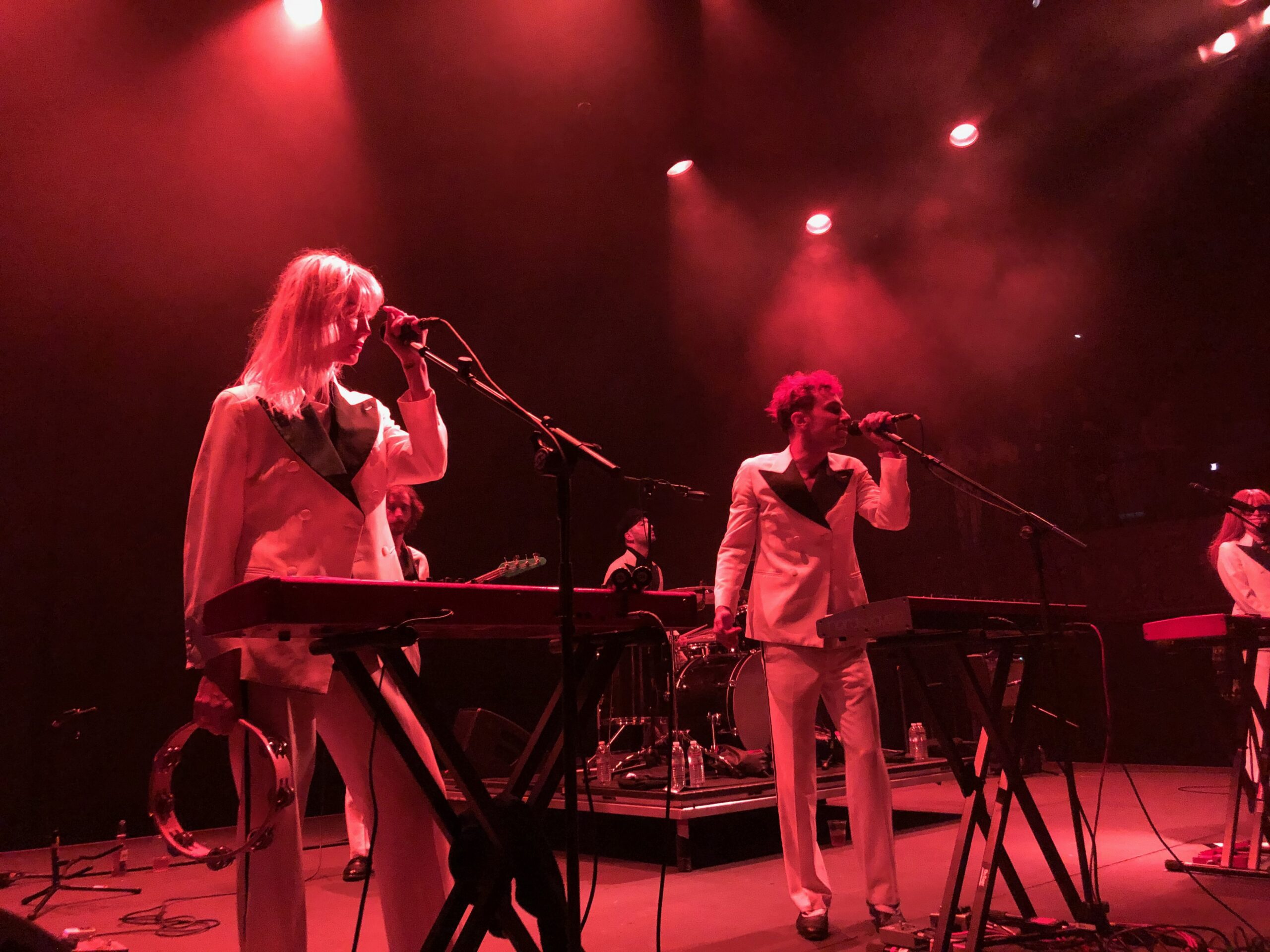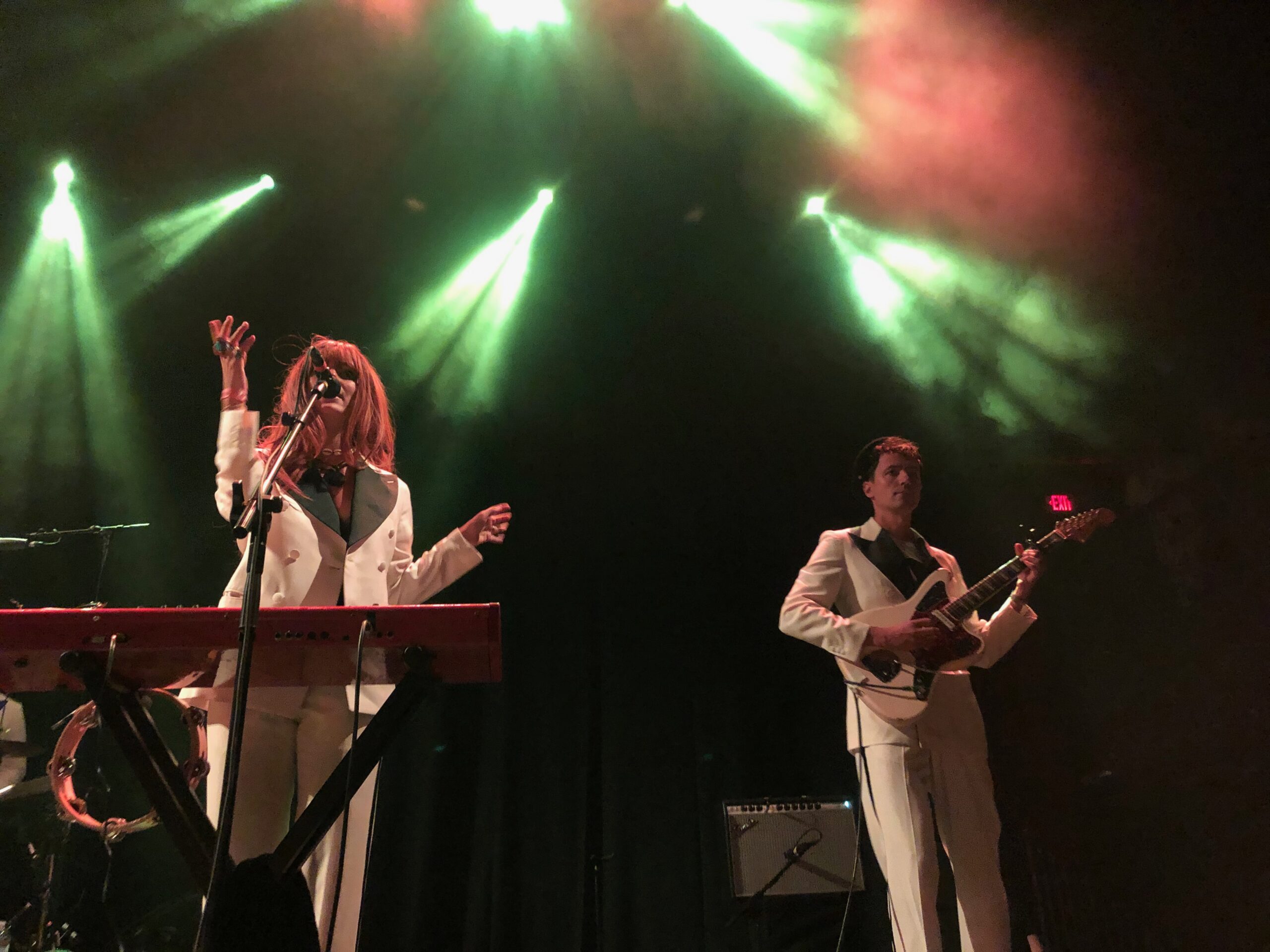La Femme Closes Out North American Tour With a Party for the Ages


Midway through their set at The Belasco in downtown Los Angeles, La Femme rips into “Antitaxi,” the synth-surf-punk opener of their 2013 debut album Psycho Tropical Berlin. The packed crowd on the floor of this grand, old theater erupts with glee. There are hands, cellphones and drink cans punching the air as the mass of bodies bop up and down in unison. On stage, the band members are getting down. They are joined by Sam Quealy, the Australian singer who already wowed fans with her opening set tonight and is now hyping up the crowd with a series of ‘60s go-go moves. It’s the penultimate night of La Femme’s U.S./Canada tour and they are throwing Los Angeles a party for the ages.
In the studio, La Femme is a duo, Marlon Magnée and Sacha Got, making synth-heavy tunes influenced by everything from big band jazz to rockabilly to cold wave. “We like to mix all of our influences, even rocksteady and ska and skinhead reggae,” says Magnée when we chat during the soundcheck earlier that Friday.
If you have heard Paradigmes, their 2021 album, then you’ve well aware of just how eclectic La Femme can be, from the jazzy “Paradigme” to the neo-psychedelic “Cool Colorado” and “Tu t’en lasses” to the new wave revivalism of “Foutre le bordel.” Their latest single, “Sacatela,” dropped just ahead of the tour.
In a lot of ways, La Femme embodies the spirit of this particular time. They aren’t married to any one genre or aesthetic. They work across media, even producing their recent film, Paradigme: Le Film, which is available to watch on YouTube. They do a lot of the work themselves; Magnée spray painted band t-shirts when they sold out of their stock earlier in the tour. But, he is also quite candid about how independent a band can be in this moment.
“We are completely dependent on Spotify, Apple Music,” Magnée says. “That’s why being independent is all bullshit because, at the end, you’re always dependent on the system. We are in that system.”

Yet, La Femme is still blazing its own trail. Transforming what is, essentially, a studio project into a live one is their strength. “For the studio, sometimes we use 100 tracks for a composition and for live it’s what you see, six musicians, so we have to rearrange it for live and make it more simple,” says Magnée.
The aesthetics are important for the band as well. Magnée says that, in the early days of La Femme, they lamented the lack of really cool visuals in music. “It’s not like the ‘80s. You had so many cool bands with strong visuals: Nina Hagen, the B-52s. All those bands were amazing,” he notes. “We were like, fuck it. We’re a band, we want to be cool and bring back all the visual things.”
Onstage in L.A., La Femme is a sextet dressed in matching white suits. At the front of the stage are four red and pink synths. They open with the groovier jams and the crowd response is immediate. During “Cool Colorado,” only the second song of the set, those pressed up close to the barricade are ready for a sing-a-long. The energy builds as the show continues. By the time they get to the bop “Foutre le bordel,” almost all of the band members have tossed aside their suit jackets. They’re bouncing and shimmying as they play. Magnée dips into the crowd, hops back on the stage and does the twist for a second or two. Out in the audience, the dancing is ecstatic and the heat in the venue rises.
Magnée was a punk kid who loved NOFX. Then, at 14, he flipped over Lou Reed. Strange as it may seem, you can hear both those influences in La Femme, along with all the other bands and genres he’s connected with over the years. “Since I was a kid, I just didn’t give a fuck,” he says. “ I’m going to mix new wave, cold wave, rockabilly, all of this.”

As Magnée points out, all those subcultures that existed with little-to-no crossover back in their heydays are now so small that the scenesters have to mix with each other. Tonight, that’s all happening at La Femme’s show, where you’re as likely to see club kids made up in glitter as you are to see folks decked out in metal band paraphernalia.
Pulling off a tour in the aftermath of COVID-19 wasn’t particularly hard, Magnée says, but it has challenges. “It’s hard to book the venue at the right time because, after COVID, all the bands started to tour again at the same time,” says Magnée. Plus, he adds, the glut of tours crossing the U.S. in the year after live music resumed meant that it was more difficult to find engineers and technicians who were available. On top of that, there’s the pressure to sell tickets and Magnée was conscious of the fact that plenty of folks might not have the extra cash for concerts. That’s all in addition to the usual stress of getting visas to play in the U.S., which has long been a notoriously convoluted and expensive process.
All that aside, the tour has gone well. Throughout it, Magnée says, he’s been able to chat with fans. “Before the gig and after the gig, I always say hi to the fans. Walk around and say hi to them, have a cigarette,” he says. For some fans, it’s been their first show since the pandemic. Others, he notes, have told him that La Femme is their first concert ever. “Everyone is in a very good mood.”
On that last night of the tour, the mood is better than good. A La Femme show is truly a party. Even as they slow down the pace, the audience remains rapt. By the time the house lights brighten, about 90 minutes have passed since the start of the set, yet, people don’t seem quite ready to leave. It’s the kind of night you don’t want to end – one that draws from wildest strains of 20th century music, mixing it all together for a 21st century audience that pulls together people from virtually every scene in Los Angeles.
Follow La Femme on Instagram and Facebook for ongoing updates.

